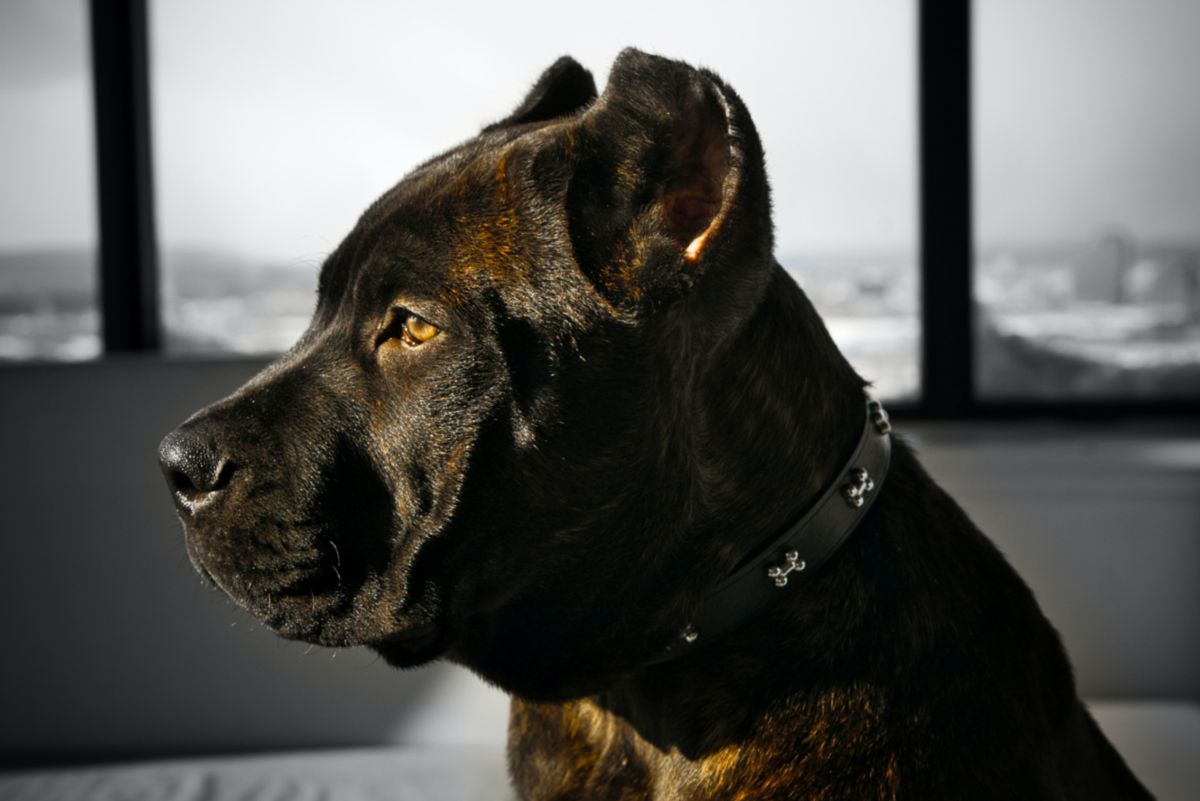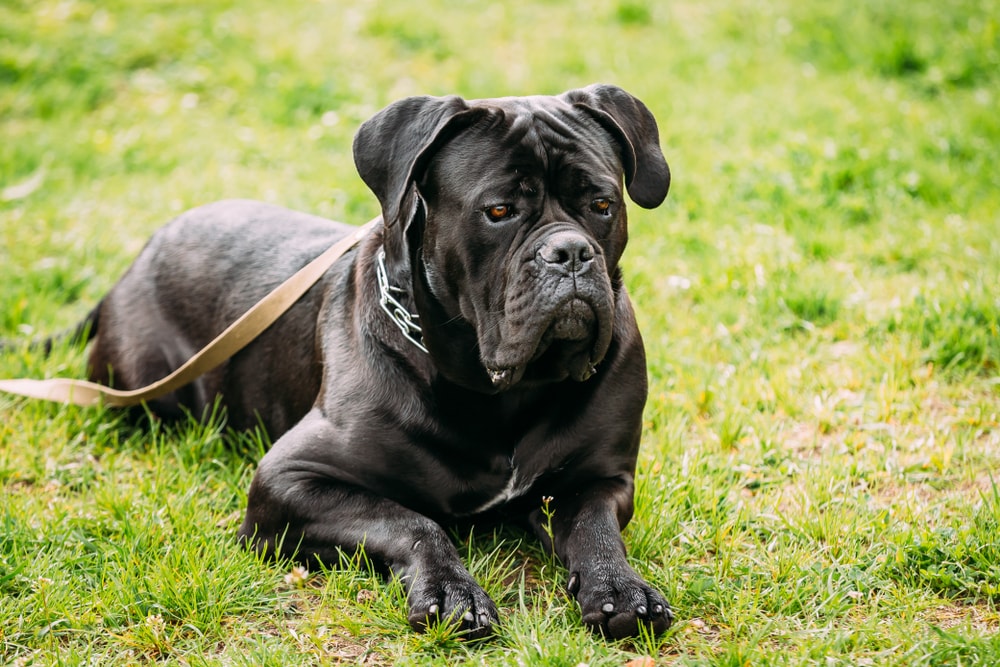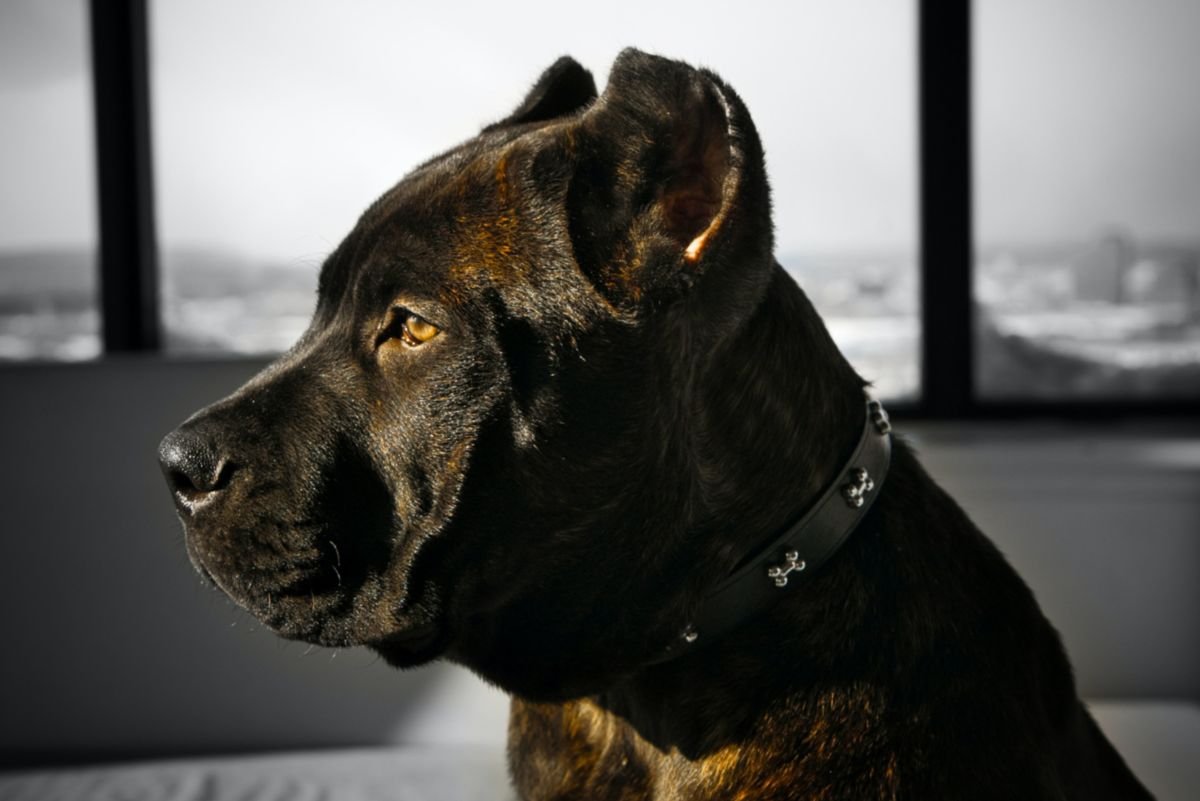Are Cane Corso dogs inherently aggressive? Despite their imposing appearance, Cane Corsos are actually known for their gentle and loyal nature. Contrary to popular belief, aggression is not a characteristic trait of this breed. Instead, Cane Corsos are known to be protective of their families and have a strong guarding instinct. This can result in them being cautious around strangers, but proper socialization and training can help ensure that their protective nature is channeled in a positive way.
Cane Corsos have a rich history as working dogs and were originally bred in Italy for tasks such as guarding properties and hunting large game. This background has instilled in them a strong sense of loyalty and protectiveness towards their families. While they may be reserved with strangers, they can form deep bonds with their owners and be exceptionally gentle and loving. It is important to note that a dog’s behavior is influenced by various factors such as genetics, training, and socialization. Responsible ownership, proper training, and early socialization are key in shaping a well-behaved and non-aggressive Cane Corso. By providing them with a stable and loving environment, Cane Corsos can thrive as loyal and trustworthy companions.

Are Cane Corso Aggressive? Understanding the Nature of This Powerful Breed
Cane Corso, also known as Italian Mastiff, is a breed that has gained popularity in recent years. With their imposing size and muscular build, it’s natural to wonder if they have an aggressive temperament. In this article, we will delve into the characteristics of Cane Corsos, their behavior patterns, and factors that can influence their aggression levels. By the end, you’ll have a clear understanding of whether Cane Corsos are truly aggressive or if there’s more to their nature.
Understanding the Cane Corso Breed
The Cane Corso is a large and powerful breed originating from Italy. They were originally used as working dogs for tasks such as guarding property, herding livestock, and hunting. Their strong and muscular bodies, combined with their sharp intelligence, made them excellent working partners. Today, Cane Corsos are primarily kept as family pets and companions, known for their loyalty and protective nature.
Cane Corsos are characterized by their impressive physique. They typically weigh between 90 to 120 pounds and reach a height of 24 to 27 inches at the shoulder. Their distinctive head features a large muzzle and powerful jaws. Despite their imposing appearance, Cane Corsos can be incredibly gentle and affectionate with their families. However, their temperament is influenced by various factors, including genetics, training, and socialization.
The Role of Genetics
Like any other breed, genetics play a significant role in shaping a Cane Corso’s temperament. It’s essential to select a reputable breeder who prioritizes temperament, health, and proper socialization. Responsible breeders will strive to produce well-rounded Cane Corsos by carefully selecting breeding pairs with sound temperaments. By doing so, they ensure that the offspring are less likely to develop aggressive tendencies.
It’s important to note that genetics are just one piece of the puzzle. Proper handling, training, and socialization are equally crucial in shaping a Cane Corso’s behavior. Early socialization should begin from puppyhood to expose them to different people, animals, environments, and situations. This helps them develop into confident and well-adjusted adults.
The Truth About Cane Corso Aggression
Misconceptions about Cane Corsos being naturally aggressive have led to unwarranted fear and bias towards this breed. While they are protective by nature, aggression is not their default state. Cane Corsos are naturally reserved with strangers, but they can be incredibly affectionate and gentle towards their family members. A well-bred and properly socialized Cane Corso will be well-mannered and non-aggressive in most situations.
It’s crucial to differentiate between aggression and proper guarding instincts. Cane Corsos have a strong protective drive, which means they may be wary of unfamiliar people or animals entering their territory. However, with proper training and socialization, they can learn to distinguish between real threats and harmless situations. This is why early and continuous socialization is essential for a Cane Corso to become a well-behaved and balanced adult.
Identifying Aggression Triggers
While Cane Corsos are not inherently aggressive, there are certain trigger factors that can elicit aggressive behavior in any dog breed. It’s crucial for owners to be aware of these triggers to prevent or manage any potential aggression. Common triggers can include fear, pain, frustration, resource guarding, and lack of proper boundaries.
Owners must address any signs of aggression promptly to ensure a safe and harmonious living environment for both the dog and the family. Seeking guidance from a professional dog trainer or behaviorist is highly recommended if you notice any concerning behaviors in your Cane Corso.
Training and Socialization Tips for a Well-Behaved Cane Corso
As with any breed, proper training and socialization are paramount for a well-behaved Cane Corso. Here are some tips to ensure your Cane Corso grows up to be a balanced and non-aggressive companion:
1. Start socialization early: Begin introducing your Cane Corso to different people, animals, and environments from a young age. Gradually expose them to various situations to build their confidence and prevent fear-based aggression.
2. Obedience training: Enroll your Cane Corso in obedience classes to establish a strong foundation of basic commands and good manners. Consistent and positive reinforcement training methods work best with this intelligent breed.
3. Use positive reinforcement: Reward-based training methods, such as treats, praise, and play, are highly effective with Cane Corsos. They respond well to positive motivation and will be more eager to please their owners.
4. Provide mental and physical exercise: Cane Corsos are an active and intelligent breed that requires both physical and mental stimulation. Regular exercise, puzzle toys, and interactive games will help them channel their energy in a positive way.
5. Set clear boundaries: Establishing clear rules and boundaries from the beginning will help your Cane Corso understand their place in the family hierarchy. Consistency and structure are essential for a well-adjusted and non-aggressive dog.
The Importance of Responsible Ownership
Owning a Cane Corso, or any large and powerful breed, comes with great responsibility. It’s crucial to be a responsible and knowledgeable owner to ensure the well-being of your dog and the safety of those around them. Here are some key points to consider:
1. Research and choose a reputable breeder: A responsible breeder will prioritize the health and temperament of their dogs, ensuring you start with a well-adjusted puppy.
2. Provide proper training and socialization: Invest time and effort into training and socializing your Cane Corso. This will pay off in the form of a well-behaved and non-aggressive adult dog.
3. Provide regular exercise and mental stimulation: Cane Corsos require daily exercise to stay physically and mentally satisfied. Engage in various activities that challenge them both physically and mentally.
4. Be a responsible ambassador for the breed: Educate others about the true nature of Cane Corsos and dispel any misconceptions. Responsible ownership and positive experiences with the breed will help combat stereotypes.
5. Be vigilant and proactive: Regularly assess your Cane Corso’s behavior and address any signs of aggression promptly. Seek professional help if needed to prevent any potential issues.
Differentiating Fact from Fiction: Debunking Myths about Cane Corso Aggression
Myth: Cane Corsos are inherently aggressive.
Fact: Cane Corsos are not inherently aggressive. Like any other breed, their behavior is influenced by genetics, training, and socialization. A well-bred and properly trained Cane Corso will be calm and non-aggressive in most situations.
Myth: Cane Corsos cannot be trusted around children.
Fact: Cane Corsos can be excellent companions for children when properly socialized and trained. However, it’s crucial to never leave any dog unsupervised with young children to prevent potential accidents.
Myth: Neutering or spaying a Cane Corso will make them aggressive.
Fact: Neutering or spaying a Cane Corso has no direct correlation with aggression. In fact, these procedures can have several benefits for their health and behavior, including reducing the risk of certain types of aggression.
Myth: Cane Corsos need to be aggressive to be effective guard dogs.
Fact: While Cane Corsos have natural guarding instincts, aggression is not necessary for them to be effective guard dogs. With proper training, they can learn to discern between genuine threats and non-threatening situations.
Myth: Cane Corsos should be kept as outdoor dogs.
Fact: Cane Corsos are highly sociable and bond strongly with their families. They thrive on human companionship and should be kept as indoor dogs. Outdoor time should be supplemented with daily exercise and mental stimulation.
The Growing Popularity of Cane Corsos: Understanding Their Care Needs
Providing Proper Nutrition for Your Cane Corso
A healthy diet is essential for your Cane Corso’s overall well-being. As a large and active breed, they require a balanced diet that meets their specific nutritional needs. Consult with your veterinarian to determine the best diet plan for your Cane Corso, taking into account factors such as age, activity level, and any health concerns.
Grooming and Coat Care
Cane Corsos have a short and dense coat that requires minimal grooming. Regular brushing will help remove loose hairs and keep their coat healthy and shiny. Additionally, ensure their ears are clean and free from debris to prevent any ear infections.
Exercise and Mental Stimulation
Cane Corsos are an energetic breed that requires ample exercise to stay healthy and happy. Aim for at least 60 minutes of daily exercise, including brisk walks, playtime, and interactive games. Mental stimulation is equally important, so provide puzzle toys, obedience training sessions, and challenging activities to keep their minds engaged.
Finding the Perfect Companion: Where to Get a Cane Corso
Reputable Breeders
When looking for a Cane Corso puppy, it’s crucial to find a reputable breeder who prioritizes the health and temperament of their dogs. Research breeders thoroughly, ask for references, and visit their facilities to ensure they provide a suitable environment for their dogs.
Rescue Organizations
Consider adopting a Cane Corso from a rescue organization or shelter. Many amazing dogs are in need of loving homes, and adopting can be a rewarding experience. Reach out to Cane Corso-specific rescue organizations or check local shelters to see if they have any available for adoption.
Health and Genetic Testing
Ensure that the breeder or rescue organization conducts proper health and genetic testing on their dogs. This helps to reduce the risk of genetic health issues in your future companion.
Selecting the Right Puppy
When choosing a Cane Corso puppy, observe their behavior and temperament. Look for a puppy that is confident, curious, and friendly. Avoid puppies that display excessive fear, aggression, or extreme shyness.
Statistical Information on Cane Corso Aggression
According to a study conducted by the American Temperament Test Society (ATTS), Cane Corsos have an overall pass rate of 83.1%, which indicates good temperament. This test evaluates a dog’s behavior and reactions to various stimuli and situations to assess their temperament and stability. The results of the study demonstrate that the majority of Cane Corsos have sound temperaments and are not overly aggressive.
It’s worth noting that individual temperament can vary within a breed, and there may be exceptions to the general statistics. However, with proper breeding, socialization, and training, the likelihood of encountering an aggressive Cane Corso is significantly reduced.
In conclusion, Cane Corsos are not inherently aggressive dogs. Their behavior is influenced by genetics, training, and socialization. With responsible ownership, proper training, and early socialization, a Cane Corso can grow up to be a loyal, gentle, and well-behaved companion. It’s important to dispel myths and misconceptions surrounding the breed, promoting understanding and responsible ownership.
Key Takeaways:
- Cane Corso dogs can display aggression tendencies if not properly trained and socialized.
- Early socialization and obedience training are essential to prevent aggression in Cane Corso.
- Proper handling and consistent leadership can help manage and prevent aggression in Cane Corso.
- Genetics and individual temperament play a role in determining aggression levels in Cane Corso.
- Regular exercise and mental stimulation are important for a well-behaved and balanced Cane Corso.
Frequently Asked Questions
In this section, we will address some common questions about the temperament and behavior of Cane Corsos.
1. Are Cane Corsos naturally aggressive?
No, Cane Corsos are not naturally aggressive. When properly bred, socialized, and trained, they can be loyal, loving, and affectionate companions. Like any dog breed, individual temperament can vary, but the general temperament of a Cane Corso is not aggressive by nature. It is essential to remember that a dog’s behavior is shaped by their environment, training, and socialization.
However, Cane Corsos are powerful and protective dogs, and if they feel threatened or cornered, they may display defensive behaviors. Early socialization and obedience training are crucial to ensure a well-behaved and well-adjusted Cane Corso.
2. Can a Cane Corso become aggressive if not trained properly?
Yes, a Cane Corso that is not trained properly can develop aggressive tendencies. Without proper socialization and training, they may become dominant, territorial, or overly protective, leading to potential behavioral issues. Regular exercise, mental stimulation, and consistent training methods are necessary to prevent these problems.
Owners should establish themselves as the pack leader, using positive reinforcement techniques to teach the dog obedience and proper behavior. Early socialization with other people, animals, and different environments is also crucial to prevent aggression stemming from fear or insecurity.
3. Are Cane Corsos good with children?
Cane Corsos can be good with children if raised and socialized properly, but supervision is always necessary. Due to their large size and protective nature, it is important to teach children how to interact correctly with the dog and to never leave them unsupervised. Cane Corsos are generally patient and gentle with their family members, including children, but their large size can accidentally knock over little ones.
Consistent training and socialization from a young age can help Cane Corsos develop into well-behaved family pets who understand how to interact appropriately with children. As with any dog breed, it is crucial to teach children to respect the dog’s boundaries and not provoke any unwanted behavior.
4. How can I prevent aggression in my Cane Corso?
To prevent aggression in your Cane Corso, start with early socialization and obedience training. Expose your dog to various people, animals, environments, and situations so they become comfortable and confident. Enroll them in puppy training classes to ensure they learn basic commands and proper behavior. Use positive reinforcement techniques, such as treats and praise, to reward desired behaviors.
Consistency is key. Establish a routine and stick to it, providing regular exercise, mental stimulation, and a structured environment. Set clear boundaries and rules for your Cane Corso, and be a confident and assertive pack leader. Regular vet check-ups are also essential to address any underlying health issues that may contribute to aggression.
5. Can a Cane Corso be aggressive towards other dogs?
Cane Corsos have a strong prey drive, and in some cases, they may display aggressive behavior towards other dogs, particularly if they perceive them as a threat. However, with proper training and socialization, aggression can be minimized. Early and positive interactions with other dogs are crucial, gradually exposing your Cane Corso to different sizes, breeds, and temperaments.
Enrolling your Cane Corso in obedience classes or joining doggie playgroups can provide controlled situations for them to interact with other dogs. In these environments, trainers can assist in proper socialization techniques and teach both you and your dog appropriate behaviors to prevent aggression. It’s important to remember that not all dogs are compatible, so being able to read your Cane Corso’s body language and understanding their individual temperament is key to avoiding conflict.

AGGRESSIVE CANE CORSO Must Be Stopped Attacking Other Dogs and People!
Cane Corsos can have a strong protective instinct, but they are not inherently aggressive. Their behavior is influenced by factors such as socialization, training, and individual temperament. While they are generally calm and gentle with their family, proper training and socialization are crucial to prevent potential aggression towards strangers or other animals. Cane Corsos require experienced owners who can provide firm yet gentle guidance and establish clear boundaries.
It is important to note that aggression is not a breed characteristic, but rather a result of individual upbringing and environment. Like any dog, proper socialization, training, and responsible ownership are key in ensuring that a Cane Corso grows up to be a well-behaved and balanced companion. With the right care, Cane Corsos can be loyal, protective, and loving family pets.
